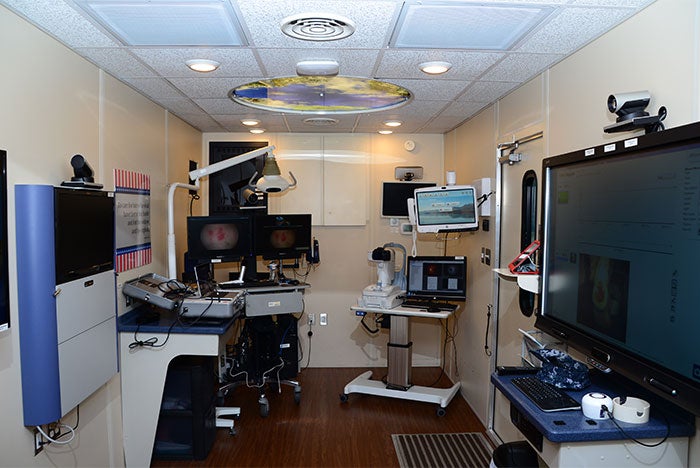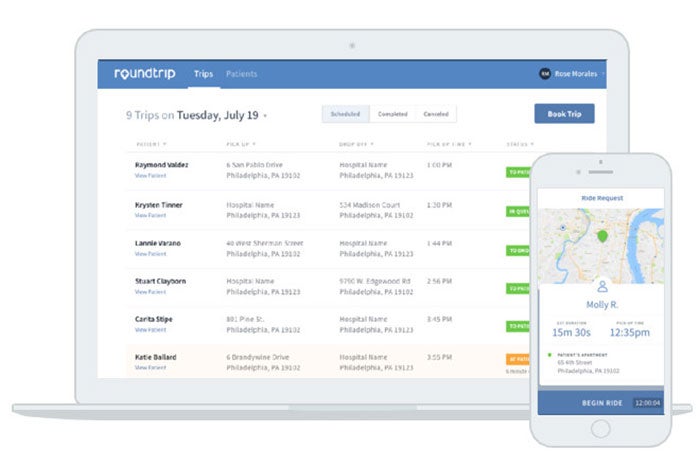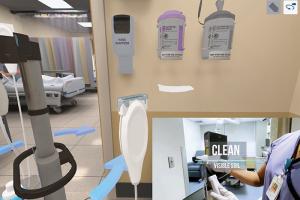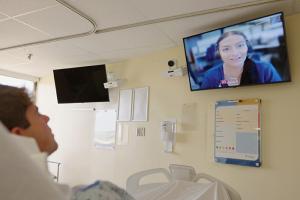Tech talk: Virtual ICU, patient transportation app and telehealth to go

The Telehealth Education Delivered van gives providers the opportunity to test out multiple remote care technologies in one mobile settings.
TED van travels the country showcasing telehealth
The TED (Telehealth Education Delivered) van is making its way across the Midwest this month. Sponsored by the Veteran Health Administration’s telehealth provider Iron Bow Technologies, TED travels the country showcasing the latest capabilities in telehealth.
The van is equipped with an assortment of touchscreens, cameras, Smart Boards and laser wands to show how technology is changing the way veterans and military patients are receiving medical care. Medical providers, patients and the general public are free to join in the education and receive training.
TED will be visiting Chicago’s Jesse Brown VA Medical Center today and the Evanston (Ill.) Community Based Outpatient Clinic tomorrow before heading to Wisconsin and then the East Coast.
Anyone interested can follow TED’s journey via a GPS map on its website.
Virtual tech helps to improve care at ICU
The nurses at CHI Franciscan Health’s clinical operations unit can keep an eye on dozens of intensive care unit (ICU) patients at once. That’s because they are doing it from a virtual ICU located in Tacoma, Wash. According to The News Tribune in Tacoma, CHI Franciscan transformed an old KeyBank call center into a hub for remote patient observation and teleconsultation. The health system refers to the nurses and providers stationed at the hub as “virtual companions,” who watch, listen and check in via two-way speakers.
Cliff A. Robertson, M.D., senior vice president of divisional operations, says the virtual care hub allows the health system to expand its care, rather than replace face-to-face employees. It gives those on the floor an extra set of eyes and the patient another care advocate.
"Virtual care is a complement, not a substitute, to the in-person services we already provide to patients," Robertson says. "It's another way for us to be there for patients who need medical care right now."
Patient transportation: There's an app for that

The RoundTrip app allows caregivers and patients to book nonemergency transportation in less than two minutes.
Cooper University Hospital and MD Anderson Cancer Center at Cooper in New Jersey are using a new app called RoundTrip to make it easier for patients needing nonemergency transportation to and from the hospital.
Using the app, the hospitals are able to cut ride-ordering time from an average of 20 minutes to less than 90 seconds. RoundTrip partners with a network of nonemergency medical transportation providers, and rides can be booked by a care coordinator or by patients themselves. The app provides vehicle tracking and time estimates, and charges the health care facility via a secure payment portal.
Christine Winn, senior vice president of MD Anderson Cancer Center at Cooper and physician alignment, told the Courier-Post in Cherry Hill, N.J., that reliable transportation is "one less thing patients need to worry about as they focus on their health."




